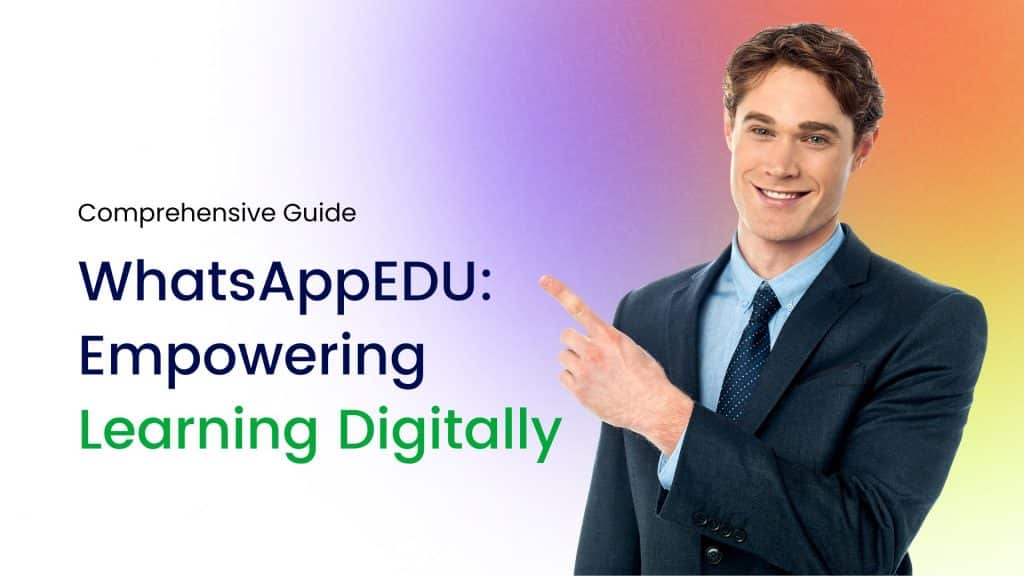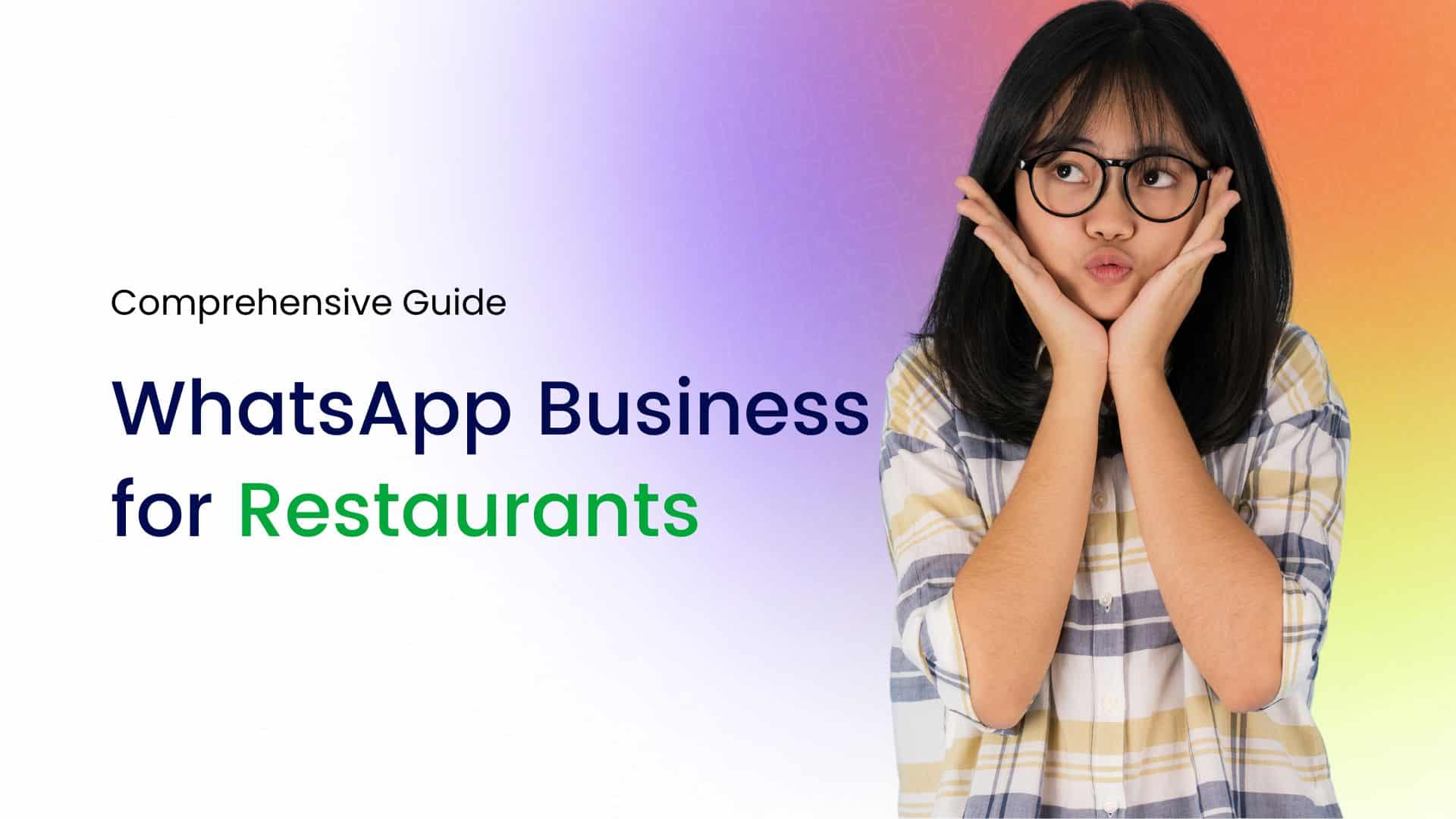In today’s fast-paced digital world, education is no longer confined to traditional classrooms and textbooks. With the advent of technology, especially mobile applications, learning has become more accessible and convenient than ever before. One such platform that has revolutionized education is WhatsApp. Originally designed as a messaging app, WhatsApp has evolved into a powerful tool for educational purposes, empowering learners and educators alike in the digital era.
The Rise of WhatsApp in Education
WhatsApp’s popularity stems from its simplicity and widespread use. With over 2 billion active users worldwide, it has become a ubiquitous communication tool across demographics. Recognizing its potential, educators have increasingly turned to WhatsApp to facilitate learning beyond the confines of physical classrooms. Its real-time messaging capabilities, multimedia support, and group chat features make it an ideal platform for educational collaboration and engagement.
Facilitating Communication and Collaboration
One of the primary ways WhatsApp enhances education is by facilitating communication and collaboration among students and teachers. Through individual chats or group discussions, students can interact with their peers and instructors, ask questions, share resources, and collaborate on projects irrespective of geographical barriers. This fosters a sense of community and enhances the learning experience, as students can engage in meaningful discussions and receive timely feedback.
Instant Access to Learning Resources
WhatsApp serves as a convenient repository for educational resources, including documents, videos, audio recordings, and web links. Teachers can effortlessly share course materials, lecture notes, supplementary readings, and multimedia content with students directly through the app. This ensures that learning resources are readily accessible anytime, anywhere, enabling students to review materials at their own pace and reinforce their understanding of concepts.
Personalized Learning Experience
Another advantage of WhatsApp in education is its ability to cater to individual learning needs. Teachers can provide personalized support and guidance to students through private messaging, addressing their questions, concerns, and learning challenges on a one-on-one basis. This personalized approach fosters a supportive learning environment and empowers students to take ownership of their learning journey, leading to improved academic performance and confidence.
Enhancing Parent-Teacher Communication
WhatsApp also plays a vital role in enhancing communication between teachers and parents, fostering greater parental involvement in their children’s education. Teachers can use the platform to share updates on students’ progress, upcoming assignments, and school events in real-time. Likewise, parents can communicate with teachers, seek clarification on academic matters, and stay informed about their child’s academic performance, fostering a collaborative partnership between home and school.
Overcoming Challenges and Ensuring Privacy
While WhatsApp offers numerous benefits for education, it also poses certain challenges, particularly concerning privacy and security. To address these concerns, educators must establish clear guidelines and protocols for using WhatsApp in educational settings, ensuring the protection of students’ personal information and adherence to data privacy regulations. Additionally, educators should promote responsible digital citizenship and educate students about online safety practices when using messaging apps for educational purposes.
The Future of WhatsApp in Education
As technology continues to evolve, the role of WhatsApp in education is poised to expand further. With features like voice and video calling, WhatsApp can facilitate virtual classroom sessions, tutoring sessions, and remote learning opportunities, bridging the gap between students and educators worldwide. Moreover, integration with other educational tools and platforms can enhance its functionality and effectiveness in delivering personalized, interactive learning experiences.
Bridging the digital divide through platforms like WhatsApp for educational purposes is a fantastic initiative. WhatsApp is already widely accessible, especially in regions where smartphones are more common than computers
Here’s how you could leverage WhatsApp for educational purposes to bridge the digital gap:
- Mobile-Friendly Content: Develop educational content that is easily digestible on mobile devices. This could include short videos, infographics, and text-based materials that can be easily shared and viewed on smartphones.
- Interactive Learning: Use WhatsApp groups as virtual classrooms where students can interact with teachers and peers, ask questions, and participate in discussions. You can create polls, quizzes, and assignments to keep students engaged.
- Resource Sharing: Share educational resources such as e-books, articles, and study materials through WhatsApp. This allows students to access learning materials even if they don’t have access to traditional libraries or textbooks.
- Language Support: Provide support in multiple languages to cater to diverse populations. This ensures that language barriers don’t hinder access to education.
- Parental Involvement: Encourage parental involvement by creating separate WhatsApp groups for parents where they can receive updates about their children’s education, communicate with teachers, and participate in their children’s learning process.
- Offline Access: Consider creating offline versions of educational content that can be downloaded and accessed without an internet connection. This is particularly useful in areas with limited connectivity.
- Partnerships: Partner with local organizations, governments, and telecommunications companies to provide free or subsidized access to WhatsApp for educational purposes. This can help overcome financial barriers to access.
- Digital Literacy Training: Offer training sessions to students and teachers on how to effectively use WhatsApp for educational purposes. This includes teaching them how to navigate the platform, use its features, and stay safe online.
By implementing these strategies, you can leverage the widespread popularity of WhatsApp to make education more accessible to underserved communities and bridge the digital divide.
WhatsApp has indeed made significant contributions to education globally. Here are a few success stories highlighting its impact
- Connecting Teachers and Students: In rural India, where access to traditional educational resources is limited, WhatsApp has become a lifeline for education. Teachers create WhatsApp groups for their students, where they share lessons, assignments, and educational videos. This has helped bridge the gap between urban and rural education by providing students in remote areas with access to quality educational materials and support from their teachers.
- Language Learning: WhatsApp has been instrumental in language learning initiatives around the world. Language teachers create WhatsApp groups where students can practice speaking and writing in the target language with native speakers and fellow learners. This immersive learning experience has proven to be highly effective in improving language proficiency.
- Exam Preparation: In countries like Nigeria and Pakistan, where access to quality education is limited, WhatsApp has become a popular platform for exam preparation. Teachers and educational organizations create WhatsApp groups where they share study materials, conduct live review sessions, and provide support to students preparing for high-stakes exams such as the West African Senior School Certificate Examination (WASSCE) and the Secondary School Certificate (SSC) exams.
- Continuing Education for Adults: WhatsApp has also been used to provide continuing education opportunities for adults. NGOs and community organizations create WhatsApp groups where adults can access vocational training courses, entrepreneurship workshops, and financial literacy programs. This has empowered adults to acquire new skills and improve their livelihoods.
- Parent-Teacher Communication: WhatsApp has revolutionized communication between parents and teachers, fostering greater parental involvement in their children’s education. Teachers create WhatsApp groups for each class where they share updates on students’ progress, upcoming assignments, and school events. Parents can easily communicate with teachers, ask questions, and stay informed about their children’s education.
These success stories demonstrate how WhatsApp has had a transformative impact on education globally, breaking down barriers to access and providing innovative solutions to educational challenges. As technology continues to evolve, WhatsApp and similar platforms will play an increasingly important role in shaping the future of education.
Unlocking the Potential of WhatsApp: Nurturing Lifelong Learning Communities
In an era where digital connectivity has become indispensable, WhatsApp emerges as a powerful tool fostering lifelong learning communities worldwide. Beyond its conventional use for communication, WhatsApp has evolved into a dynamic platform, breaking down barriers to education and nurturing an environment where learning knows no bounds. From rural villages to bustling metropolises, its impact resonates across diverse demographics, unlocking the potential for continuous learning and growth.
Empowering Education in Remote Regions
In remote regions where traditional educational resources are scarce, WhatsApp serves as a beacon of hope, connecting students with teachers and resources like never before. Take rural India, for instance, where teachers leverage WhatsApp groups to share lessons, assignments, and educational videos. This innovative approach transcends geographical constraints, providing students with access to quality education regardless of their location. As a result, the disparity between urban and rural education diminishes, paving the way for a more inclusive society.
Cultivating Language Proficiency
WhatsApp has emerged as a catalyst for language learning, offering immersive experiences that transcend classroom boundaries. Language teachers worldwide harness its capabilities to create virtual learning environments where students interact with native speakers and fellow learners in real-time. Through WhatsApp groups, language enthusiasts engage in meaningful conversations, exchange cultural insights, and hone their linguistic skills. This dynamic approach not only accelerates language acquisition but also fosters a deep appreciation for diverse cultures and perspectives.
Revolutionizing Exam Preparation
In countries grappling with educational disparities, WhatsApp has emerged as a lifeline for exam preparation. From Nigeria to Pakistan, students preparing for high-stakes exams such as the WASSCE and SSC turn to WhatsApp for support. Educational organizations curate dedicated groups where students access study materials, participate in live review sessions, and receive guidance from experienced educators. This collaborative approach democratizes access to quality exam preparation resources, empowering students to realize their full academic potential irrespective of socio-economic barriers.
Facilitating Continuing Education for Adults
Beyond traditional classroom settings, WhatsApp plays a pivotal role in facilitating continuing education for adults. NGOs and community organizations leverage its reach to offer vocational training courses, entrepreneurship workshops, and financial literacy programs. Through WhatsApp groups, adults gain access to invaluable resources and networking opportunities, empowering them to acquire new skills and enhance their livelihoods. This democratization of education fosters economic empowerment and social mobility, laying the foundation for sustainable development.
Strengthening Parent-Teacher Collaboration
WhatsApp revolutionizes communication between parents and teachers, fostering meaningful partnerships in education. Teachers create dedicated groups where they share updates on students’ progress, upcoming assignments, and school events in real-time. This seamless exchange of information enables parents to actively participate in their children’s education, ask questions, and offer support. By bridging the gap between home and school, WhatsApp nurtures a collaborative learning environment that nurtures holistic development.
The Future of Education is a WhatsApp Away
In the ever-evolving landscape of education, technology continues to play an increasingly integral role. Among the plethora of digital tools available, WhatsApp stands out as a versatile platform with the potential to revolutionize learning as we know it. As we delve into the intricacies of the digital age, it becomes evident that the future of education is just a WhatsApp away.
A Global Classroom at Your Fingertips
With over 2 billion users worldwide, WhatsApp transcends geographical boundaries, making it a powerful tool for global education. Its accessibility on smartphones ensures that students from diverse backgrounds can connect, collaborate, and learn together. Imagine a virtual classroom where students from Mumbai to Manila engage in real-time discussions, share resources, and collaborate on projects. WhatsApp’s instant messaging capabilities transform traditional education paradigms, creating a dynamic learning environment that knows no bounds.
Personalized Learning, Anytime, Anywhere
WhatsApp’s versatility extends beyond text messaging, offering features that facilitate personalized learning experiences. From voice notes to video calls, educators can leverage various mediums to cater to diverse learning styles. Picture a student in a remote village receiving personalized feedback on their assignment via a voice note from their teacher. Such interactions foster individualized learning pathways, empowering students to progress at their own pace and reach their full potential.
Breaking Down Barriers to Access
In regions where access to traditional educational resources is limited, WhatsApp emerges as a beacon of hope, bridging the digital divide. Its lightweight design and low data usage make it accessible even in areas with limited internet connectivity. Educational materials can be shared via WhatsApp groups, enabling students to access textbooks, lectures, and study guides with ease. By democratizing access to education, WhatsApp empowers individuals from underserved communities to pursue their academic aspirations and unlock new opportunities.
Empowering Educators, Engaging Learners
Educators wield immense power to inspire and empower the next generation of leaders, and WhatsApp serves as a catalyst for their mission. Teachers can create dedicated groups where they share lesson plans, facilitate discussions, and provide support to students outside of class hours. The platform’s multimedia capabilities allow educators to craft engaging learning materials that capture students’ attention and foster active participation. As educators harness the power of WhatsApp, they pave the way for a future where learning is not confined to the four walls of a classroom but extends beyond, into the digital realm.
Building Communities of Lifelong Learners
At its core, education is a lifelong journey fueled by curiosity, exploration, and discovery. WhatsApp cultivates communities of lifelong learners, where knowledge is freely exchanged, and ideas are passionately debated. Alumni networks, professional learning communities, and online study groups thrive on WhatsApp, fostering a culture of continuous learning and growth. As individuals embark on their educational journeys, WhatsApp serves as a companion, offering support, guidance, and camaraderie every step of the way.
WhatsApp is transforming from a personal communication tool into a catalyst for educational innovation” sign up now: https://panel.autochat.in/signup“
conclusion
WhatsApp has emerged as a valuable ally in the quest to empower learning in the digital era. By leveraging its communication features, multimedia support, and collaborative capabilities, educators can enrich the educational experience, foster student engagement, and facilitate meaningful learning experiences both inside and outside the classroom. As technology continues to advance, WhatsApp holds immense potential to reshape the future of education, making learning more accessible, interactive, and inclusive for all.







